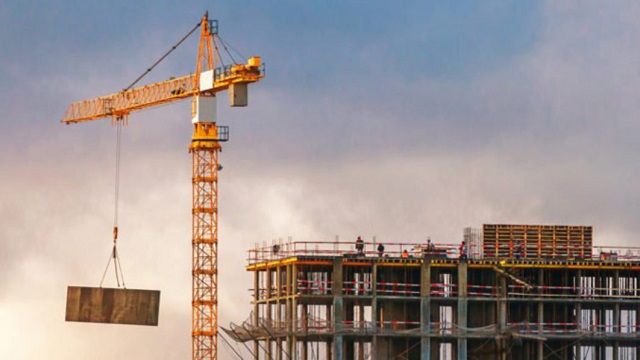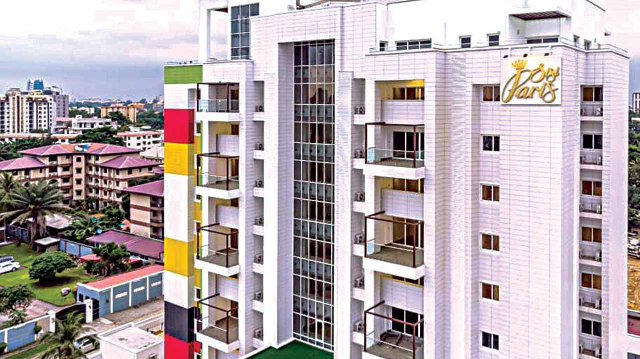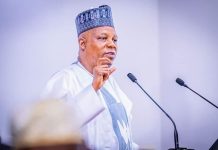Following the global shutdown, a substantial amount of foreign capital inflow into the construction sector, especially in building and infrastructure development may have dwindled.
Improvement in Foreign Direct Investments (FDIs) in the industry enhances economic growth, increase human capacity development, technology transfer, create jobs as well as boost the Gross Domestic Product (GDP).
While the global infrastructure market was projected to grow at 67.1 percent Compound Annual Growth Rate (CAGR) from 2019 to 2027, Nigeria’s chunks of it has been abysmally low over the years.
According to the National Bureau of Statistics report, FDI constituted only 3.73 percent, amounting to $200.08 million of total capital inflows in Q3 2019, this represents the lowest across all forms of capital inflows in the country.
Regrettably, figures indicate that construction sector was among the 16 major sectors of the economy that recorded a decline in capital importation in Q3 of last year with a total of $8.04 million. The hope of better days for the sector in 2020 looks dim with inflation trending up, which could also impact the cost of construction.
Industry experts say, the nation has lost huge investment opportunities in the construction industry due to the shutdown of the economy for about four months, stressing that at present, activities haven’t really picked up to maximum level.
The former chairman, Nigerian Society of Engineers, (NSE) Apapa Branch, Dr. Ombugadu Garba noted that foreign investors are still watching what the trend would be while the year is almost ending.
He said, “The pandemic is at the moment taking its second wave in European countries and that is generally affecting our system, not just the construction industry alone. The rate at which people get money has dropped. When construction is vibrant, that’s when money is spent, and people would also see how they could invest.”
Garba observed that the federal government has little resources to manage the system. He stated that when there are uncertainties, especially in terms of government policies and others social factors, investors exercise restraints in investing their money.
According to him, Nigeria’s construction system and processes are still so lengthy, encumbered with many unofficial charges, and filled with lots of bottlenecks. These, he noted could discourage FDIs in the construction sector.
“Sometimes government might be sincere in marketing itself for FDI’s in construction sector, but there could also be a clog in the wheel of progress. Some people may want something to happen before something could be given. Those are factors that negate investments. Poor policy implementation concerning the industry is also another issue that adversely affects investments in industry”, he added.
The president, Nigerian Chapter of the International Real Estate Federation (FIABCI), Adeniji Adele said although getting specific data maybe difficult, but it is evident that Nigeria has lost huge investments.
He stated that in terms of foreign cash inflow, the commercial property investment has suffered from the impact of COVID-19 because people had to work from home.
Adele said, the time has come for the country to fine-tune issues relating to transparency in doing business, consistency in policy, institutional framework and improvement in regulations for doing business to bring more foreign investments.
“If you look at Nigeria rating in the ease of doing business as compared to Kenya, that country is better and Rwanda is better than Nigeria and so a lot of foreign investors would find their ways to those countries. A lot of investors will want to come in when there is proper legislation on ground, ease of parameters of coming into the country, and adequate security.”
“We need to put things in the right perspective. Investors want security of their capital. The exchange rate has gone up and prices of construction materials have also gone up and so it becomes difficult for people to invest. People also find it difficult to get facilities from the banks because the money is not there”, he said.
According to him, there are still many opportunities from African Development Bank where people can access fund for FDI in the construction sector, commercial, and agricultural industry. He expressed worries as to whether such loans are cheap.
A fellow of the Nigerian Institution of Estate Surveyors and Valuers, Samson Agbato who corroborated Adele, called for a comprehensive legal framework that protects investors’ s fund, adding that policy consistency in line with global best practices will go a long way to boost the sector.
“Investors must have an understanding that they are investing in an environment that is not volatile, have comfort with government policy. Because you are dealing with the construction industry, you will realize that there a lot of indices that make projects work from planning, conception, to delivery. The areas of unified exchange rate, planning permits, titling, reform agencies of government at the state and federal levels. All these are parts of what makes a project succeed or fail. Government must look at policy that can support all these”.
He said, if those criteria could work, there would be more ingestion of foreign direct investments into the economy.
Source: Guardian












